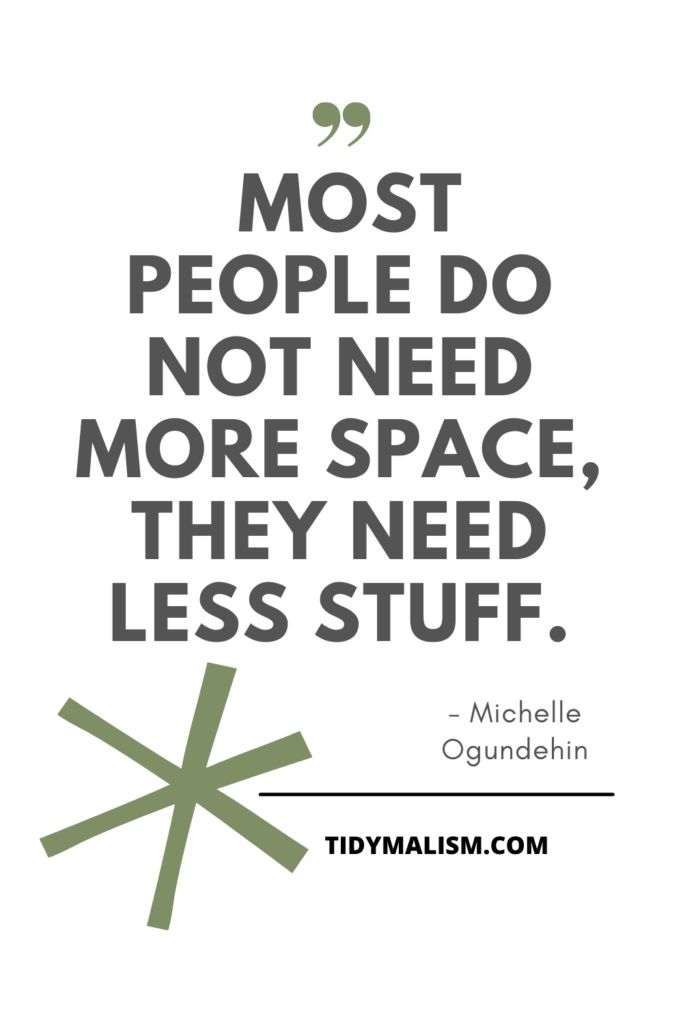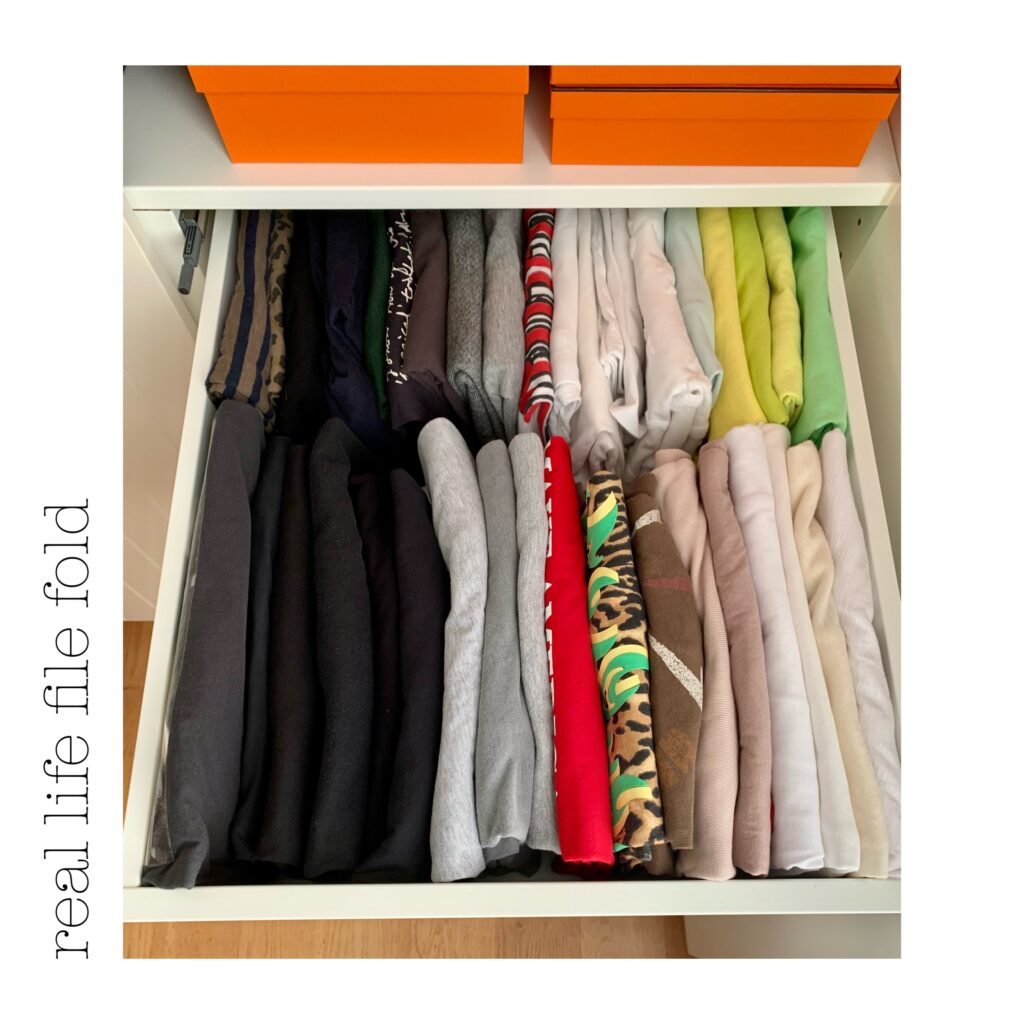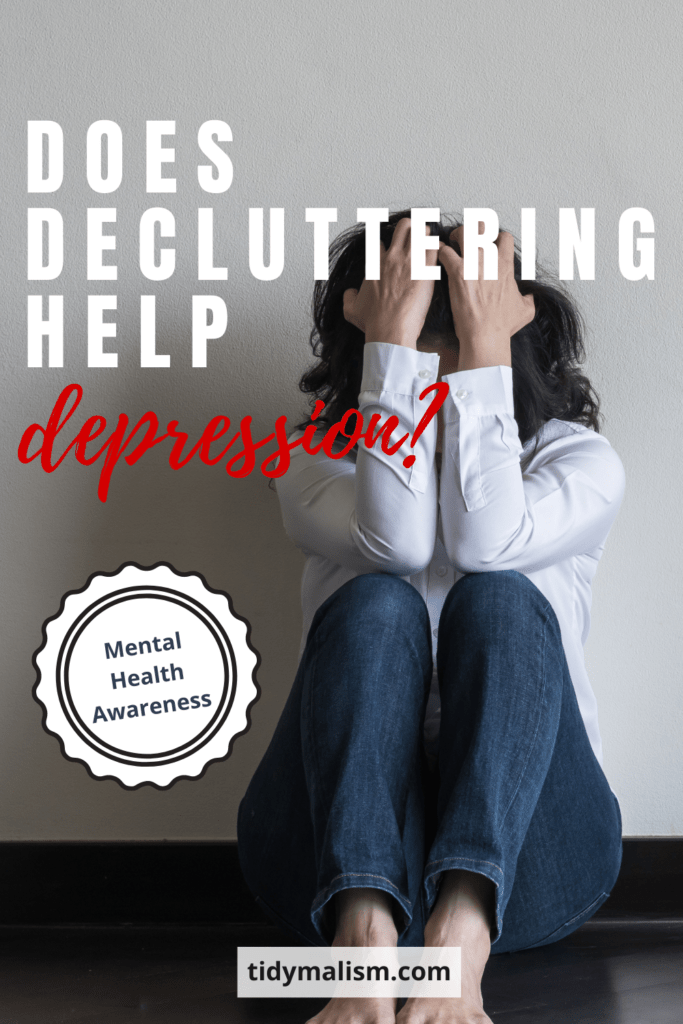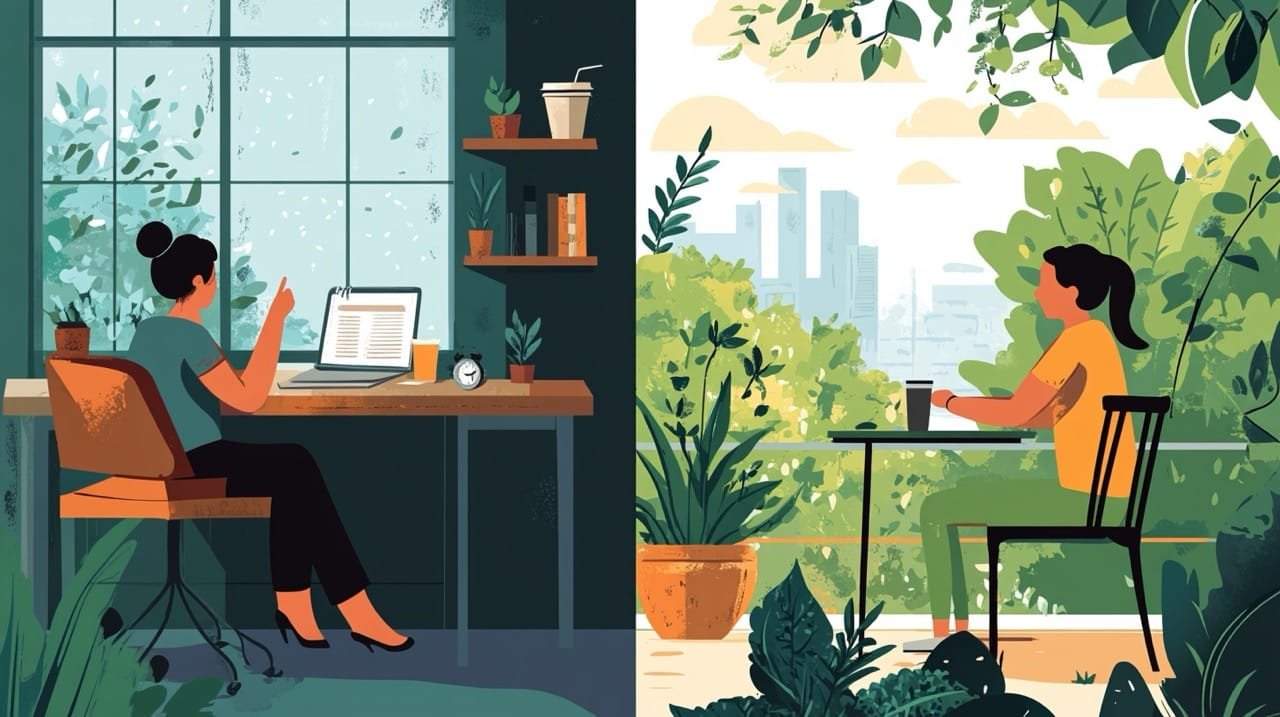I’m sitting here all alone at home as I have been since the pandemic struck, wondering if decluttering helps combat depression and anxiety. I realised that it’s May, and May is Mental Health Awareness Month in the United States. In the UK, Mental Health Awareness Week also starts next week on 10 May.
It’s said that 20% of all adults in western countries suffer a bout of mental illness at least once in their lives, and that was before the global epidemic. Depression and anxiety have undoubtedly become more common conditions since the onset of Corona.
Isolation and detachment from friends and colleagues is particularly hard for single people. Sitting alone through lockdown after lockdown for over a year has taken a toll on many folks. How can we make things more comfortable for ourselves during this time? What’s the relationship between clutter and mental health, and does decluttering help depression?
Clutter is stressful. It saps our natural creative spark, our finances, and our energy. The good news is that it’s not a terribly difficult stressor to combat. By decluttering you can regain a sense of purpose and control in your home environment and life. Let’s look into what this all means, and how you can harness decluttering to elevate your mood and fight depression. Perhaps it will help you reduce some anxiety, find more focus, peace of mind, and comfort at home.
Table of Contents
Why an Untidy Home Is Stressful
A 2009 study conducted by researchers at UCLA found that women who described their homes as cluttered had higher levels of the stress hormone cortisol, and elevated depressed moods during the day. Why is clutter so stressful?
Clutter is a Constant Signal That You’re Never Done
Living in an untidy environment is a perpetual reminder that we still have work to do. Be it clean the kitchen, catch up on an overflowing heap of ironing, clear away the mountain of deposit bottles for recycling, or get rid of stacks of read newspapers. All of that stuff is constantly bombarding your senses. It’s constantly reminding you that you still have work to do. That makes you feel guilty, and it’s preventing you from relaxing.
Clutter is Expensive
Hanging on to things because you think you might need them down the road comes at a cost. All the stuff in your home that you don’t use is taking up space. Space that you’re paying for, whether you rent or own. And all that stuff probably also cost a lot of money to begin with.
You might not need a bigger place with more space, you might just need less stuff in your life. Decluttering can help you assess your situation and evaluate what you really use, really need, and really love. Plus, when things are tidy you’re less likely to get hit with late fees on another bill you forgot to pay on time because it got lost in a heap of paper junk!

Having a lot of things not only means you need more space to put them; you’ll also have expenditures to care for and maintain everything. Not to mention all the times you can’t find what you’re looking for because of the clutter. All the times you wind up buying a replacement for the item you can’t find. Where on earth is that monkey wrench? It’s not in the toolbox where it should be! Six months after you buy a replacement monkey wrench you find the old one in a box of home repair items tucked away in the depths of your cellar. Now you have two… Sound familiar?
Clutter Robs You of Your Time and Productivity
Living with a lot of stuff is not only expensive in terms of your personal finances. It also costs you your precious time. Time to search for things, time to clean them, time to repair them, time to buy replacements. Time to worry about them when you think they’ve been lost. Clutter takes up your headspace. It inhibits productivity and creativity because it’s not only occupying your space, it’s occupying your mind.
With more and more people working from home nowadays, having a comfortable and tidy space makes more sense than ever. Living and working in an uncluttered environment allows you to focus on what you truly care about. It frees your mind up to be creative and productive, instead of worrying.
Feeling good and focused in your space is calming and, for me at least, decluttering really does help with the blues.
So How Does Decluttering Help Depression and Reduce Anxiety?
Have you ever gotten lost in the Zen-like flow of cleaning or tidying? It feels good. Great, even. Sometimes you don’t even realise exactly how good it feels until you’re done. Then you take a step back and suddenly notice how much you’ve actually accomplished. And how you even lost track of the time.
Decluttering Gives You Back a Sense of Control
Doing a good clear-out can sharpen your focus for what really matters to you. Having tidier surroundings to work and live in brings our attention back to the things we really want to focus on.

You also reclaim control over your environment by decluttering, and that’s a major mental power play to your benefit. Knowing where everything is and feeling good in a clean space gives you a feeling of authority over your life. This, in turn, helps put you back in the driver’s seat for your ride out of depression city.
Decluttering Boosts Your Confidence
Cleaning and tidying provide almost immediate gratification and successful results, which is hugely positive and can really lift your spirits. Even when everything is going terribly at work or in your personal life, decluttering gives you back the sense of having accomplished something within a relatively short amount of time. In short, it makes you feel satisfied and motivated, and that lifts your self-confidence and helps kick depression in the butt.
Living in a cluttered house or flat can not only make you feel stressed. For some it can be a source of frustration and embarrassment, which only fuels anxiety even more.
When your place is no longer a mess after decluttering, for example, you won’t feel conscious when a friend or neighbour unexpectedly drops by. You’ll also feel better about preparing yourself nourishing meals when your kitchen is tidy. Healthy food and real-life social interaction are vital when you’re depressed.
Decluttering Gets You Off Your Bum
How else does decluttering help depression? Much in the same way that tidying and cleaning are good for you. Assuming you’re not using any harsh chemicals of course, they’re great activities for your overall health.
Even if you’re only doing short bursts of housework, it’s a real physical activity that gets you moving. It’s imperative to move your body at least a little bit when you’re depressed, and cleaning can allow you to release a lot of tension and stress. In turn, this can help reduce those cascading waves of anxiety.
Decluttering Can Save You Money
When you have fewer things, you’ll have less to look after and maintain. Maybe you’ll even discover that you need far less space and decide to downsize your home to save on rent or mortgage and property tax payments. Besides this, decluttering can yield a tidy sum of chump change which can quickly add up. You can turn your clutter into cash by re-selling it on online marketplaces, at boot sales in your region, or at a garage sale.
Also keep in mind that many official organisations can issue a tax certificate when you make charitable donations. You can then use this to offset taxes at your annual return. So if you’re donating any significant amounts of good or expensive items, be sure to enquire about a tax claim.
How to Start Curbing the Clutter
So now that you’re starting to see how much a tidy home can contribute to your well-being, where and how do you start decluttering when you’re coping with depression or suffering from anxiety?
Take Baby Steps
It really comes down to this: start small. Rome was not built in a day, and you’re not feeling well so go easy on yourself. Do what you can, when you can. Even one tiny action item a day makes a big difference. It really is true that if you stick with it, you’ll start seeing how different your home environment looks. This can be hugely comforting when you have a serious case of the blues or when you’re coping with anxiety and panic attacks.
If you’re finding it hard to summon any motivation, I recommend starting with one single simple drawer or shelf. This can usually be done in less than ten minutes.

Or perhaps you might prefer to tackle the pile of recycling in the kitchen, which you’ve been meaning to haul away. When you return from the recycling bins, it will feel great to see that it’s all out of the way!
Go with the first thing that comes to mind. Any corner of your room that’s been bugging you. You’ll find that it is possible to push through the feeling of being overwhelmed when you just start with something, and start small. You can even set a timer if you find it helpful to anticipate being able to stop decluttering after ten or so minutes, for example.
Resist Striving for Perfectionism
If you’re anything like me, you know what it’s like to postpone doing things until they can be done just right, with all the proper materials, and in absolute perfection. I definitely struggle with this a lot of the time. Try to let go of this notion though, so that you can just start decluttering.
It’s ok to just do that one shelf today, or to only wipe down one kitchen cabinet instead of all of them. The main point is to start somewhere, with something, and then to continue on a little bit every day.
Organise Your Things After Decluttering
Don’t rush out to buy new organisation containers and baskets before you have actually decluttered. It’s really better to get rid of the clutter first so you see what you’re actually keeping. Then you can assess if and what organisation helpers you might need. You’ll find that you often don’t need anything at all, as I’ve discussed in my post about buying new stuff to organise the old stuff.
So once you’ve tackled the actual clutter, the organising fun can begin (I think it’s fun at least!). If you do need to invest in some new things to help you organise, it is good to look at more sustainable options rather than clear plastic, which is usually harmful to the environment.
On Amazon and elsewhere, you can find bamboo drawer organisers, raffia baskets for the closet, and glass mason jars for the pantry and kitchen for example. Put things away in an order that makes sense to you, so that you can easily find what you need going forward, when you need it. If you’re feeling adventurous, you might even want to try some Konmari-style file folding in your closet drawers.

Get Help When You Need It
Finally, don’t be shy about enquiring for professional help. Not just for your mental health, but also for your home. Perhaps you’ve been unwell for a longer period of time and now you’re faced with a mountainous mess you really do not know how to tackle. It can feel totally overwhelming, I know! But remember: there are people out there who can help you.
I’ve found paying for certain services I don’t like doing myself to be worth its weight in gold. Even when I’ve been near broke in the past, my well-being profited tremendously from still having a housekeeper come weekly for an hour or two. The amount of stress (and backaches) she took off my shoulders was worth it. I still have a housekeeper to this day, and I always tend to clean or tidy up along with her when she’s here. Just having someone else busy cleaning around me is motivating.
If you need help decluttering, there are professional organisers out there in a variety of price ranges who can help. If you hate ironing, many dry cleaners will accept your washed laundry and just do the ironing for a very low price. And if you haven’t washed your windows since the final season of Game of Thrones, there are window washer pros out there who can do that for you, too.
Keeping Your Space Tidy After Decluttering
As you slowly get back into the groove of reclaiming your space and making your home your sanctuary again, you might want to think about how you plan on staying tidy.
Sticking to a light weekly cleaning schedule or quickly tidying up for 15 minutes every day after work might make sense for you. It can certainly be particularly beneficial during bouts of depression to have a routine.
Make a routine
Aiming to leave rooms as you had found them is another good goal to have. For example, clean the kitchen in the evening and wipe the kitchen table so you can start your next day in tidy surroundings. Starting the day without any stressors like clutter or dirty dishes from the previous night can make a huge difference in your mental well-being.
Set Your Boundaries
You might also want to consider implementing the 1-in, 1-out rule to avoid having the clutter stack up again. This rule basically entails getting rid of one item for every new item your purchase. Remember to also ask yourself some questions before you make new any purchases. For example: where will you store the new item? How often will you really use it?
TL;DR How Decluttering Helps Depression
- You reclaim a sense of control over your immediate environment by decluttering, tidying, and cleaning. The feeling of being in control is a powerful factor in combating depression because it reduces the sense of passive helplessness.
- Decluttering can help you save money, which feels motivating. Feeling motivated, in turn, is a mood booster and can reduce stress and anxiety.
- Claiming easy wins and and achieving success by accomplishing small goals gives you back some self-confidence. You feel pleased with yourself for getting something done.
- Tidying, decluttering and cleaning are physical activities. Moving your body reduces levels of cortisol. Having lower levels of this stress hormone makes you feel better overall (and helps you get a better night’s sleep!).
- Decluttering allows you to focus on more than just the task at hand. Creating a clutter-free environment you feel good in will also bring your focus back to more important things in life like work, play, and friends. You won’t be constantly distracted by an untidy household.
- You’ll feel less anxious about visitors stopping by. During lockdowns, house visits might be your only remaining form of social interaction. If you’re depressed, you need to make sure you’re still having some human contact.
So how about you, does decluttering help depression? How are you feeling right now in your space, amongst your stuff? If you’re surrounded by clutter and feeling down, I hope this article was able to provide you with some wee motivation and ideas to start decluttering and take back control of your space. Please leave a comment further below if you have any thoughts or other tips.
Resources for Urgent Mental Illness Situations
Last, but not least, I want to include a resource for anyone currently in need of counselling or going through a particularly rough patch all alone.
If you are having a meltdown and don’t know who to talk to, you can contact 7 Cups.com.
7 Cups is available internationally and it’s free. Their professional volunteers offer support 24/7, and can also assist you with finding a licensed therapist in your region.
If you are having an emergency and think you want to harm yourself, please pick up your phone and dial a suicide hotline in your country listed here.
Be well.
Disclaimer: I am not affiliated with 7 Cups or any hotlines. The information on this page is not intended to replace professional counselling or medical treatment. Please consult a physician if you are in need of psychological or psychiatric help.






Leave a Reply